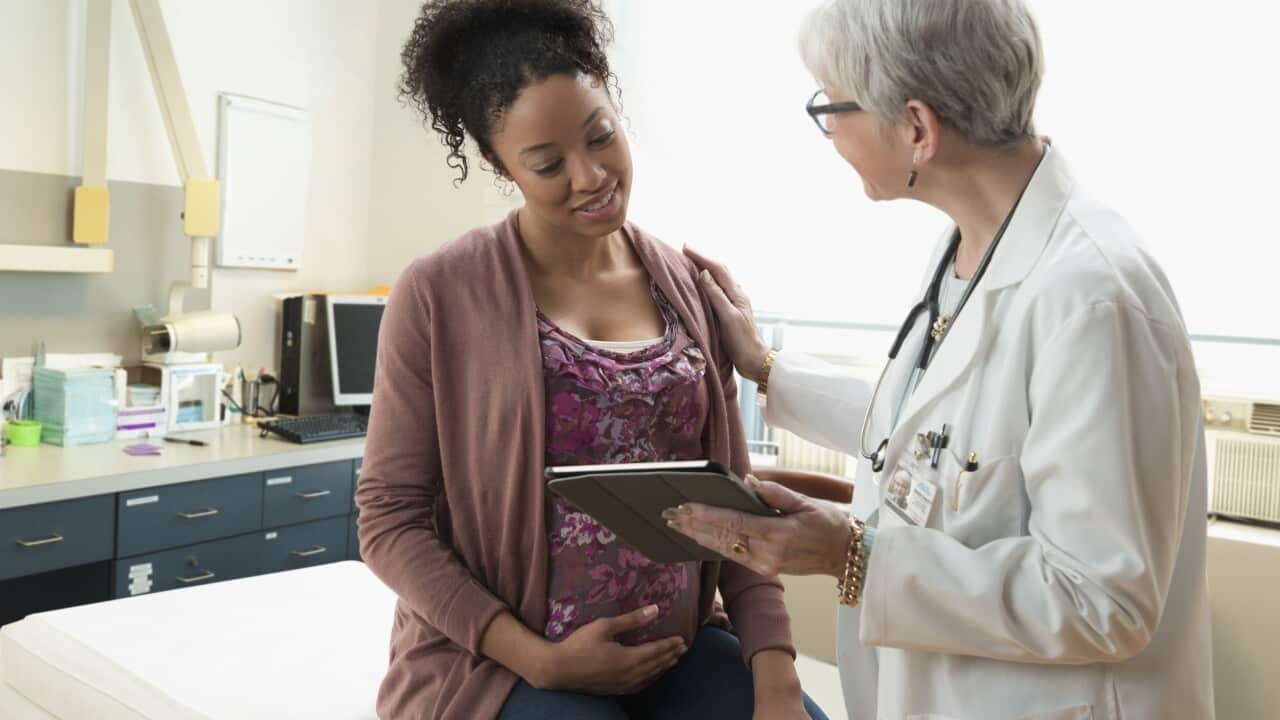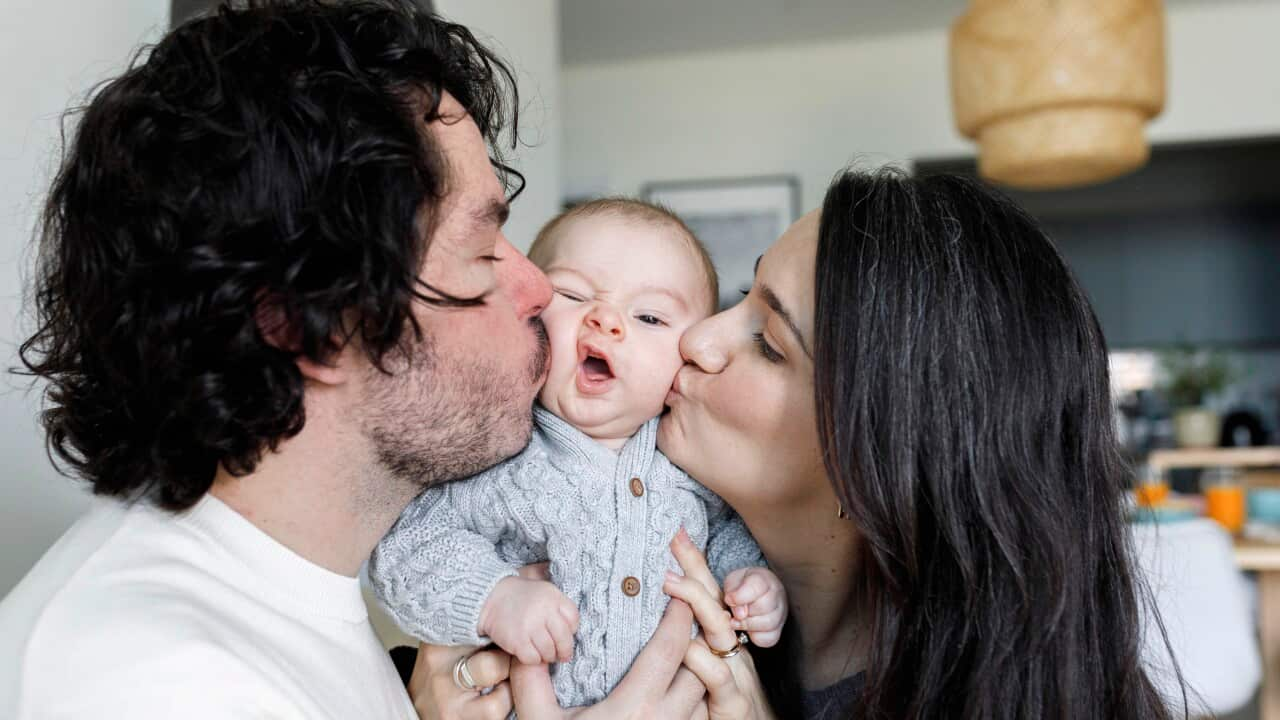Key Points
- Pregnant women can take a COVID-19 vaccine at any time during pregnancy
- Antibodies created through vaccination can cross the placenta and benefit babies in their first few months
- The rate of miscarriage was higher in pregnant women with COVID-19: a Korean study
Canberra-based public sector employee Annabel is due this month.
Annabel is excited, but she had been worried about contracting COVID-19 and its impact on her baby throughout her pregnancy.
She followed all COVID safety measures and took all three recommended doses to avoid catching the infection.
But the thought of vaccine's side effects has kept her worried too.
"I am equally concerned about the unknown side effects of COVID-19 vaccines," Annabel tells SBS.
Australian Department of Health and Aged Care says vaccines are safe and they don't increase the chances of pregnancy complications such as premature delivery, stillbirth and congenital disabilities.
Pregnant women testing positive to COVID-19 have a higher risk of certain complications
"The best way to reduce this risk is to stay up to date with your COVID-19 vaccinations," it said.
What do the latest studies show?
A Canadian study published in the last month confirmed that the mRNA vaccines (Pfizer and Moderna) are not associated with any increased risk of overall pre-term birth or stillbirth.
The study was based on 85,162 births in Ontario between 1 May and 31 December 2021.
Another Canadian and peer-reviewed study published in on 11 August showed pregnant vaccinated females had lower risks of a significant health event (which requires an emergency department visit or hospital admission) than non-pregnant vaccinated females.
An Israeli published in July showed pregnant women who contracted coronavirus in the third trimester, especially after 34 weeks of gestation, had a higher risk of pre-term birth from a COVID infection.
A Korean found that the rate of miscarriage was higher in pregnant women with COVID-19 than in those without COVID-19.
What's the latest advice on vaccines for pregnant women?
Pregnant women can have a COVID-19 vaccine at any time during pregnancy.
Department of Health and Aged Care says the risk of severe disease decreases with the number of vaccine doses.
"New studies have shown that pregnant women who have received three doses of vaccine have low rates of severe COVID-19 with the Omicron strain," it said.
The Australian Technical Advisory Group on Immunisation (ATAGI) recommends three doses for pregnant women.
A fourth dose is recommended for pregnant women aged 16 and over with additional health risks.
Pregnant women aged 30 and over are eligible to receive a fourth dose. However, they are encouraged to consult with their doctor first about their health needs and the benefits of the dose.
How to deal with misinformation?
Melbourne-based obstetrician and gynaecologist Dr Nisha Khot advises residents to avoid researching for information on Google.
"There are many misinformations surrounding vaccinations on the internet. So go straight to the department of health website for authentic information," says Dr Khot.
Dr Khot was shocked to hear some misinformation her patients shared with her. For example, some patients mentioned that vaccination affects the fertility of both mothers and their unborn babies.
"Always speak with your GP or healthcare provider for factual information," Dr Khot adds.

Talk to you doctor, any concerns you have over COVID vaccination Credit: LumiNola/Getty Images
"Although all pregnant women will benefit from the fourth dose, right now, pregnant women who have extra risk factors such as diabetes and other medical conditions are targeted," she explains.
Department of Health and Aged Care says there is not much information about fourth doses in pregnancy, but there are no specific safety concerns.
As with any vaccine, there are side effects of COVID-19 vaccination. These are usually mild and temporary. Pregnant women have been found to have similar side effects to non-pregnant women following vaccination
COVID-19 vaccines' benefits to unborn
Department of Health and Aged Care says research shows that the antibodies created during pregnancy after receiving a COVID-19 vaccine can cross the placenta.
"This occurred in women who received their first dose early in pregnancy and were fully vaccinated before their baby was born," it says.
"These antibodies may protect the baby against COVID-19 for the first few months of life."
SBS is committed to providing all COVID-19 updates to Australia’s multicultural and multilingual communities. Stay safe and stay informed by visiting regularly the






